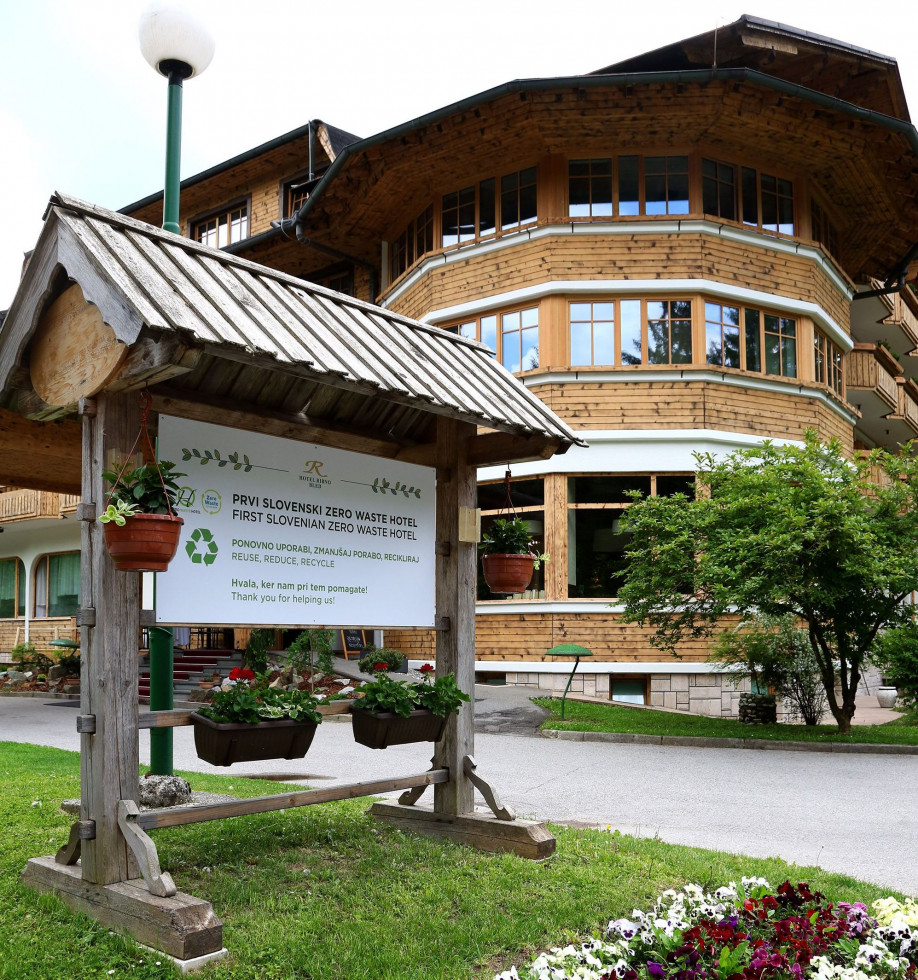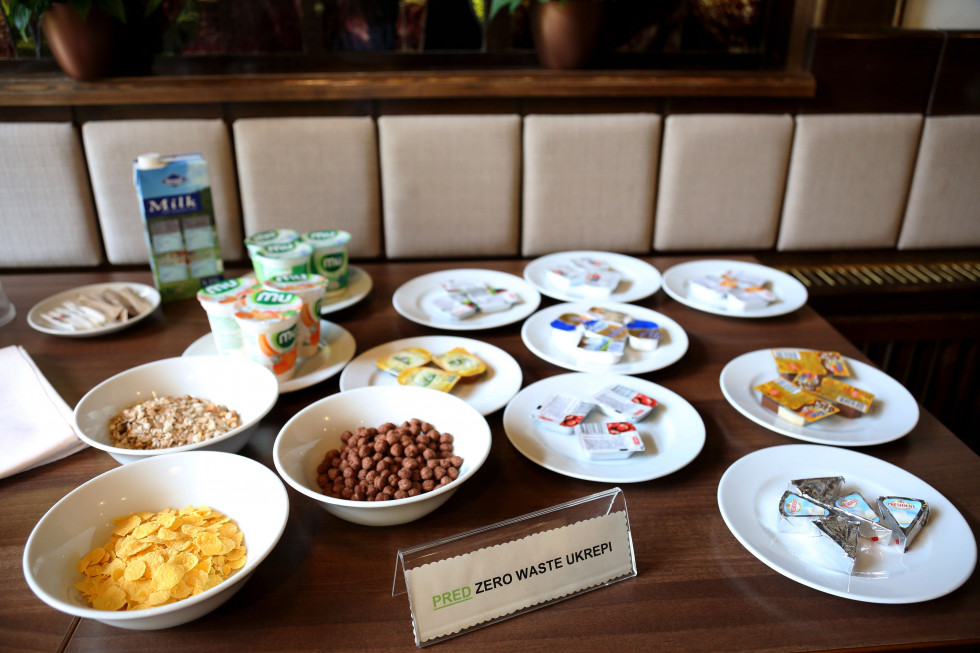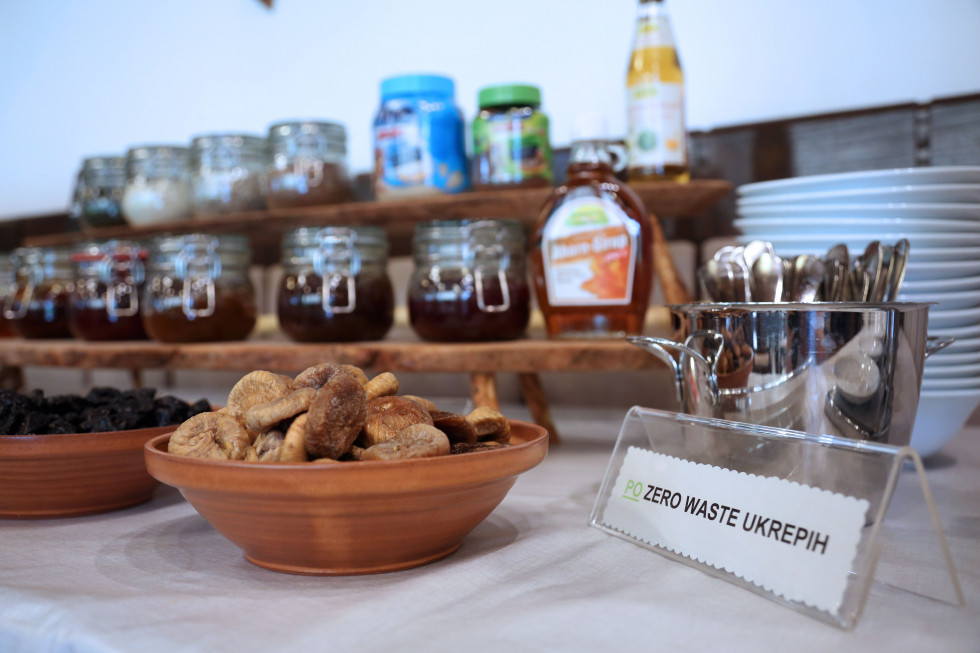Slovenia – the only country with a zero waste capital city, zero waste hotel and zero waste events
Last year Slovenia recorded over 15 million overnight stays. On average, guests produce at least 1 kilogram of waste daily, resulting in 15 thousand tonnes more waste in Slovenia. In Bled, the capital of cream cakes and pletna boats, as much as 70% of the waste is produced from tourism.
Zero Waste Slovenia
"Counting your chickens before they hatch," said the Municipality of Bled, undertaking, as one of the nine Slovenian pioneers, to reduce the amount of waste and improve their separate collection. On their path to a zero waste society or a society with less municipal waste, they are supported by Ecologists Without Borders in the national Zero Waste organisation for Slovenia, which is part of the Zero Waste Europe network.
After four years of membership of the Zero Waste network, waste in Bled has not disappeared, of course. But this is not the main purpose of the concept, which has been developing in more than 350 local communities around Europe, including the Slovenian municipalities of Bled, Ljubljana, Vrhnika, Log-Dragomer, Borovnica, Gorje, Radovljica, Slovenske Konjice and Žalec. Waste will always be produced, and the zero waste concept is merely a map of different paths to help us reduce the amount of waste. We are obviously on the right track, considering that, with concerted efforts, all the aforementioned municipalities have succeeded in preventing a total of 15,750 tonnes of mixed municipal waste from being generated, thereby saving 3 million EUR. A positive side effect of this project is the forging of ties and cooperation between all the stakeholders involved.
Zero Waste hotel
One such hotel is Hotel Ribno, the first Slovenian zero waste hotel. After two years of introducing measures to reduce waste and ensure the separate collection of waste, Hotel Ribno has succeeded in achieving that 92% of the waste is collected separately. But this process required much more than just filling out forms. Without the commitment of the management and employees, who often weighed and examined the waste, it would not be possible to obtain such a title. It is crucial to change the entire operational policy and introduce measures such as placing bins for separate waste collection in hallways and offering food without packaging. Each and every step matters.
Zero Waste events
At the other end of Slovenia, the zero waste map has been used by the organisers of the Jurjevanje folklore festival in Bela Krajina, Art Camp and (Z)mešani festival. They have consistently promoted the separate collection of waste and have been introducing measures to prevent waste from being produced – they have been striving to reduce the use of plastic for one-time use and installing drinking water fountains at festival sites, with their responsible attitude to the environment also being reflected in the content of their programmes. All the aforementioned examples of good practice demonstrate that the zero waste concept is about much more than just waste. By selecting appropriate measures, we can reduce impacts on climate change, also due to reduced energy and water consumption and sustainable mobility. The alpha and omega of a successful transition to a zero waste society is communication. Visitors taking a stroll around the symbol of Bled will not benefit from drinking water fountains and bins for separate waste collection if they do not even know they exist.
However, improved communication increases the level of services, providing a significant competitive edge. The trend towards green has also been demonstrated by other tourism providers, who have visited our Slovenian zero waste pearls and are following their example. Moreover, this trend is also reflected in the media, which can no longer overlook zero waste practices when covering environmental topics. Accordingly, records are being broken not only with the numbers of overnight stays but also with media coverage of zero waste, which has increased threefold in the past four years. This a good thing.
Zero Waste tourists
As individuals, we can also contribute to reducing the impact of tourism on the environment; in 2011 the tourism industry was responsible for the generation of 48 tonnes of waste, accounting for 14% of all generated municipal waste at a global level. We should avoid the use of plastic items for one-time use, support environment-friendly accommodation and events and, at tables laden with delicious food, bear in mind the amounts of food going to waste. We should avoid buying useless souvenirs, should borrow our camping equipment and should not forget to separate waste. Surveys show that, when on holidays, people behave in a much more wasteful way, which is why we should reflect on how individual changes can help us make a great impact together. With our green behaviour, we should set an example to others when travelling around the world and to foreign tourists in Slovenia.
Together, we can make sure that Slovenia continues to fly the green flag and remains a green spot on the world map for a long time to come. We should see the five stars mentioned in the first paragraph become a reality. We are on the right track. We can pride ourselves on being the only country in the world with a zero waste capital city, a zero waste hotel and zero waste events. As Matija Blažič, the director of Hotel Ribno, said on being awarded the title of Zero Waste Hotel: "Today, we might positively stand out as someone who is breaking new ground in this area, but in a few years’ time, any company that will not apply this concept will stand out, the same as we do now. The only difference being that they will stand out in a negative way." Let Slovenia be the first one to stand out, setting a positive example to others.
Similar articles
-
Alpina’s I feel Slovenia hiking boot
-
Elan showcased the first fully functional folding all-mountain carving skis in the world
-
The COVID-19 pandemic has created a new reality
-
Dr Miha Mlakar: a scientist connecting artificial intelligence with sport
-
International Research Centre on Artificial Intelligence in Ljubljana
-
The innovative spirit of Slovenian youth - My company project
-
Slovenia – the only country with a zero waste capital city, zero waste hotel and zero waste events




